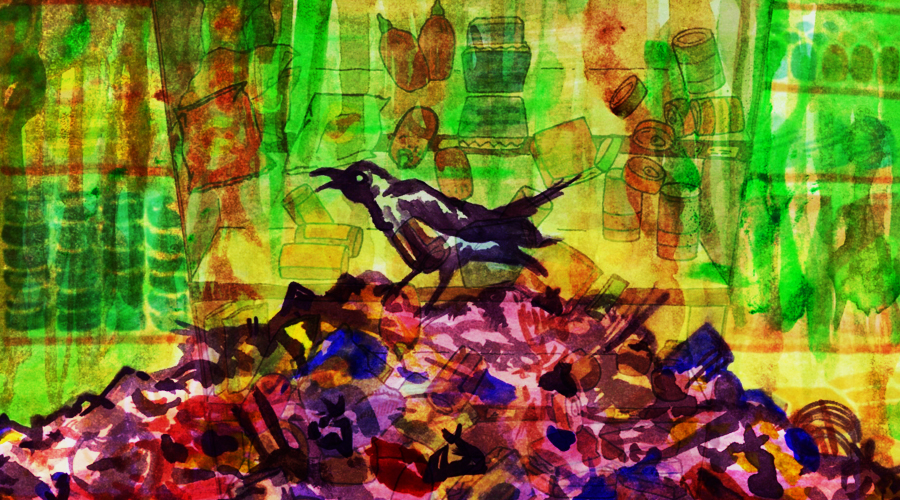Trash and I have always had a pretty intimate relationship. Growing up in the hills we didn’t have kerbside rubbish removal, so our Sundays always involved a 40 minute drive to the local tip where we then had to sort and dump our trash into giant bins and an even bigger landfill. Holding a very visceral image of how much waste our family produced I was pretty confident that I wasn’t a super wasteful person- yet when I moved back recently from a one-person apartment to my beloved sharehouse it was like peeling back a Band-Aid and finding that the wound underneath had festered and was now weeping a rancid yellow puss. There were bags and bags of wrecked clothes, unused things, plastic bottles and plastic bags- it was absolutely nuts. I felt dirty and ashamed.
I decided to do what any sensible millennial would do – I googled, pinned and Youtubed my way into committing to a dramatic life change– I decided to go zero waste completely.
Living zero waste is a lifestyle rooted in the one goal of simply producing less waste. It’s not only rubbish but also recyclables, energy, food waste, and especially relevant to WA, water. If you look it up you’ll see a lot of eco-minded 30-somethings in the USA buying in bulk from Wholefoods, storing things in fancy jars and posting #aesthetic photos on Instagram. That’s not my brand of lifestyle change. I believe that if anyone wants to change their habits, it needs to be sustainable, gradual, and easy to slot into ones daily routine.
Starting a zero waste lifestyle is all about making informed choices. Look in your neighbourhood and see if there are places you can switch your shopping to that have less packaging or have locally grown produce. Your local grower’s markets, Spudshed and even IGA can have great ranges of locally grown fruit and veggies. Instead of bagging your tomatoes and oranges in plastic bags, either forgo a bag completely or bring a reusable one from home. Same goes for your dry goods: look for bulk buy stores or delis with locally sourced bits and pieces. In Perth, we don’t have many at all, so you will have to look around. Some great options are Kakulas Sisters/Brothers, the Angry Almond in Subiaco and the champion of them all – The Wasteless Pantry in the Hills.
I know it still sounds quite overwhelming so here are some tips that will help in your (hopeful) transition to a zero waste lifestyle.
- Canvas bags are both great for replacing plastic carry bags and individual produce bags. Shove your prised bushel of kale in that old promotional tote you got on O-Day.
- Reusable alternatives – KeepCups, metal forks and knives, even the classic metal water bottle.
- Make things yourself – bread, produce bags, makeup wipes, the lot. If you can’t buy it and you want it that badly you’ll learn to make it. This applies to lunches, brunches and coffees too.
- Work with what you’ve got – reuse the trash you can, compost, and use your garden to grow things if you can.
- Do it like your grandparents did – Use tea towels instead of paper towel, hankies instead of tissues, glass/metal/ceramic containers instead of plastic. You can even learn to can your own produce. This brings me to my next point…
- Research. Read, watch, ask someone. Many different local communities run free classes on the different aspects of sustainable living and there are tonnes of blogs with advice, recipes and tutorials.
- Finally, talk about it. Blab about it. Blog about it. The more people you tell, the more accountable you’ll become, and the more people you’ll influence to make the change too.
Zero waste is hard, yes. But it is also rewarding in many different ways – both for your own wellbeing, and for the environment.
Words by Clement Sache
Art by Catriona Thomson
This article first appeared in print volume 88 edition 1 HEAT.


